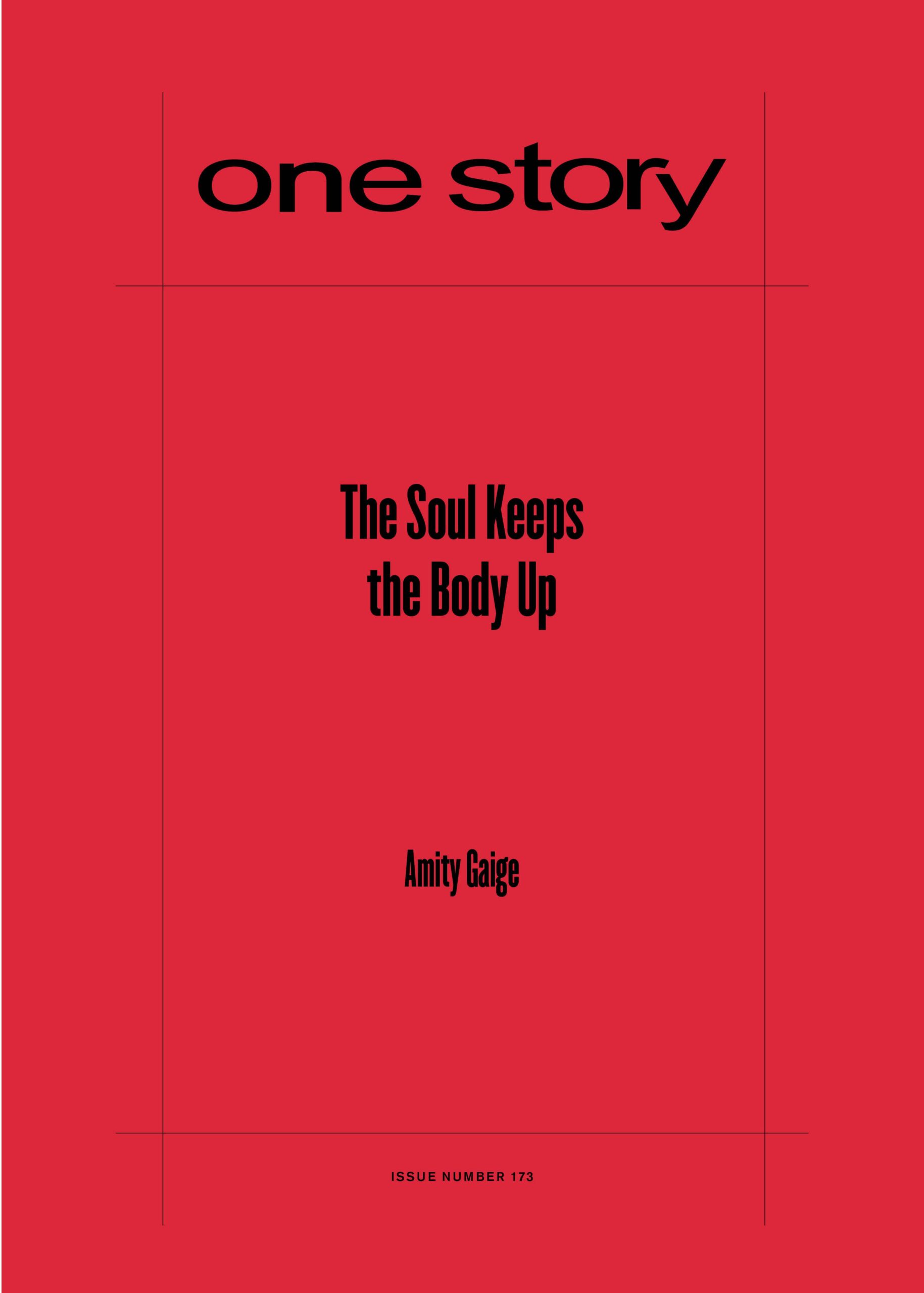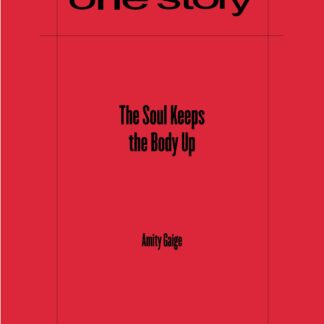
The Soul Keeps the Body Up
$2.50
91 in stock
Excerpt
As soon as I heard the car, I came out to the stoop, hands in pockets, and watched my daughter, Meadow, as she jogged across the spring grass carrying her backpack. My father-in-law sat idling at the curb in his enormous black Chevy Tahoe. When he saw me, he gave me his trademark surprised smile, like Hey, you’re still you, and waved to me as if I were not actually locked in mortal conflict with his daughter.
I want to address the first question that many observers are asking about my case:
Did the accused premeditate the abduction?
I’ll tell you the answer. The answer is no.
Or, not really.
Besides, the word “abduction” is all wrong. It was more like an adventure we both embarked upon in varying levels of ignorance.
“Good morning, Butterscotch,” I said.
My daughter looked up at me, her red-framed eyeglasses reflecting the several large willows that loomed over my rented ranch house from the backyard. The wind rose, lifting the ends of her long hair. She hoisted the backpack onto her shoulder.
“Morning, Daddy.”
Amity Gaige
Amity Gaige is the author of three novels, O My Darling (2005), The Folded World (2007), and Schroder, which is forthcoming from Twelve Books/Hachette in February 2013. Amity is the winner of a Fulbright Fellowship, fellowships at the MacDowell and Yaddo colonies, a Baltic Writing Residency, and, in 2006, she was recognized as one of the “5 Under 35” outstanding emerging writers by the National Book Foundation. Her short stories, essays, and reviews have appeared in publications such as The Los Angeles Times, The New York Times, O: The Oprah Magazine, The Literary Review, The Yale Review, and elsewhere. She lives in Amherst, Massachusetts, and is the current Visiting Writer at Amherst College.
Q&A by Will Allison
- WA: “The Soul Keeps the Body Up” is adapted from an excerpt of your forthcoming novel, Schroder (Twelve Books/Hachette, February What was the most challenging aspect of writing this story0Where did the idea for this story come fromHow long did it take you to complete this story). What’s the novel about?
- AG: Schroder takes the form of a confession, written as a letter from a man who calls himself Eric Kennedy, to his estranged wife, Laura. In the letter/novel, Eric explains how and why—a year after he lost custody of his six-year-old daughter, Meadow, in a divorce—he kidnapped her during a parental visit. He tells the story of their time on the road driving through New England, stopping at lakes, hotels, and even bars. Although Meadow is initially thrilled with the adventure, it’s still a disastrous mistake on Eric’s part, and he comes to regret it profoundly.
- WA: What does it take to craft an excerpt so that it can stand on its own as a short story?
- AG: A good editor? Will Allison helped me put this together. It helps that this excerpt, “The Soul Keeps the Body Up,” describes one discrete action—the decision on Eric’s part to “hit the road” with Meadow—and follows this decision through to its conclusion and early consequences. Plus it includes a car chase.
- WA: Can you talk about the challenges of getting readers to root for a character who does bad things?
- AG: My six-year-old son calls people like Eric a “bad-choicer.” It’s one thing to do bad things and another to be a deeply bad person, an irredeemable bad seed. Some people consider Eric the latter, but most consider him a bad-choicer. But yes, both parties can still feel uncomfortable rooting for him as he makes his reckless decisions. His backstory—the story of his real identity, and his wounded German childhood—do serve to temper readerly judgment of him. But in the end, I don’t mind if readers are uncomfortable reading about Eric or rooting for him. It’s fiction—the perfect territory for exploring what we ourselves believe, what we would do in a character’s stead, our own outermost limits.
- WA: Do you find it any easier or harder to write from the perspective of a male character?
- AG: I loved writing from the perspective of a male character. I have a son, a husband, several father figures, so I got to produce something artful after years of observing the other. But to be fair, I am writing about a very specific and unique kind of man—a fraudulent man, a pretender. His fraudulence influences his maleness, perhaps lending it a canned or awkward quality? I did not have to worry about verisimilitude because his whole persona is a construction. He is twice-constructed—by himself and then by me—if that makes sense.
- WA: I love the ease and fun of the rapport between the narrator and his daughter, Meadow. Did you have a clear sense of their relationship when you started the book, or did it evolve as you went along?
- AG: I’m glad you like the portrayal of that father-daughter bond. I knew when I started the novel that I was going to consider the possibility that this reckless and damaged person might actually be a good father. That was the contradiction I was set to explore. Eric treats Meadow like a peer, which in certain contexts is wonderful and in other contexts is completely inappropriate. I liked the dark comedy of the latter moments. But to your question, the relationship did evolve as the novel went along. Toward the end, Eric becomes more vulnerable to Meadow than he was at the beginning. He becomes more naked, more honest.
- WA: How long did it take you to complete the novel?
- AG: I wrote Schroder relatively quickly in about a two-year period. But I’d been thinking of it, consciously and unconsciously, for years.
- WA: What are you working on now?
- AG: I just had a baby, so I’m diapering and cleaning and dangling little toys.
- WA: What is the best bit of advice about writing you have ever received?
- AG: Well, I remember when Marilynne Robinson (who taught me in graduate school) described the ideal fictional consciousness, apropos of Melville’s in Moby Dick. She said she loved how Melville’s narration was like “light on water: wherever it rests, it sparkles.” It made an impression. I also like the (perhaps apocryphal) statement Nabokov once made: “If they cut off your hands, write with your mouth.”
